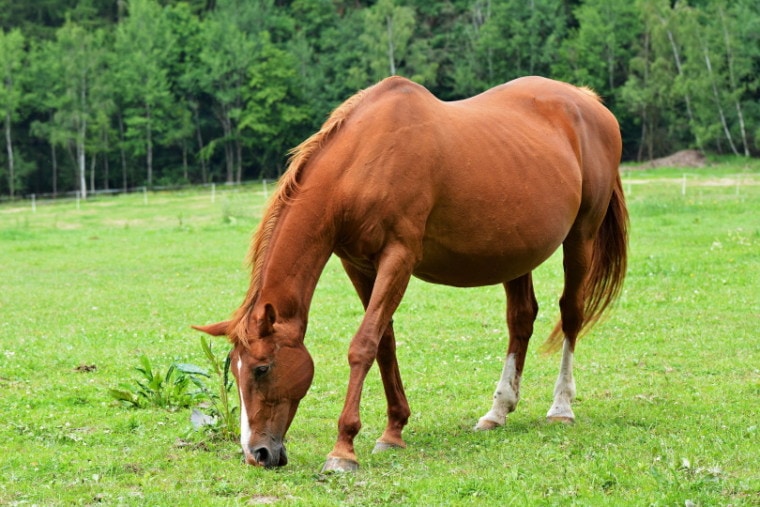
Just like other animals, horses often show many signs that they’re pregnant. Often, it is harder to notice their pregnancy in the beginning. However, as the pregnancy continues, it often becomes easier and easier to tell that the mare is pregnant.
If you’re interested in whether or not your mare is pregnant, there are many signs you can look for. However, not all horses show obvious signs of pregnancy. In many cases, you’ll need to consult with a veterinarian to determine if your horse is pregnant or not.
Furthermore, you’ll need to get your horse regular vet care while she is pregnant.

The 4 Signs That Tell You a Horse Is Pregnant
1. Physical Changes
Many females exhibit at least some physical changes when they are pregnant, especially as the pregnancy matures. Some of these are pretty obvious, while others may be harder to notice. Often, keeping an eye on your horse for any apparent changes is the best way to pick up on these differences.
Most of these changes occur during the latter part of pregnancy—with practically none occurring at the beginning. Therefore, it’s often a while before you notice pregnancy if you’re basing it on physical changes only.
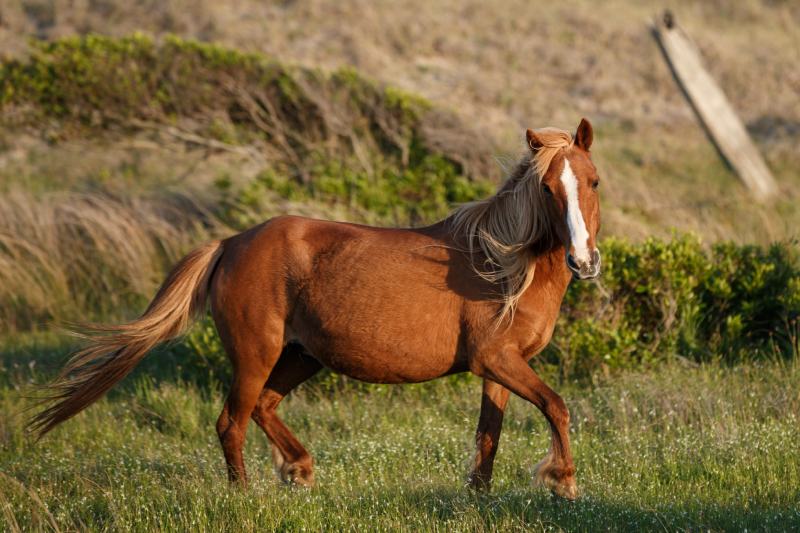
2. Behavioral Changes
Mares often experience several behavioral changes throughout pregnancy, as well. These vary a lot from horse to horse. Some may pop up and be quite obvious for a few days before disappearing completely. Others may never show up at all, or they may appear at the beginning of the pregnancy and then never leave.
Not all females experience these changes. Every horse and pregnancy is unique. However, these changes can help indicate that your mare is pregnant.
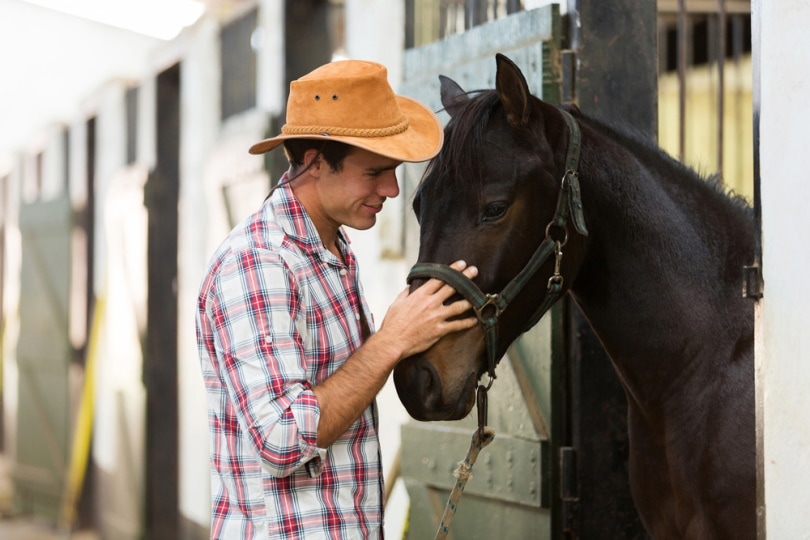
3. Ultrasound
An ultrasound is a noninvasive way for a veterinarian to confirm pregnancy. It’s used for a wide range of different animals, including horses. Ultrasounds can also be utilized to detect abnormalities in the fetus and measure its size.
During an ultrasound, a special gel is applied to the mare’s stomach area and a handheld device is utilized to transmit high-frequency sound waves. These bounce off tissue they come into contact with, which the device detects. In this way, it can create a view of the fetus and surrounding structures.
Ultrasounds can be performed fairly early effectively, sometimes as early as 14 days after ovulation. The pregnancy can be confirmed by looking for a small structure called a gestational sac that develops very early in pregnancy.
Ultrasounds can also be utilized to monitor the pregnancy as it develops. Because it’s noninvasive and rather simple to perform, it may be done several times throughout the mare’s pregnancy to ensure that everything is developing properly. It allows complications to be picked up early.
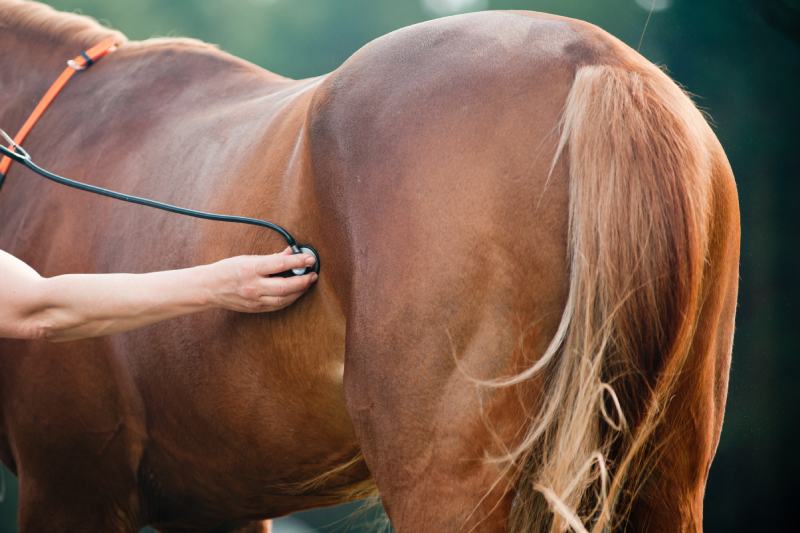
4. Bloodwork
Bloodwork can also be done to confirm pregnancy in mares. Specific hormones and proteins found in the blood only occur (or occur at raised levels) when the mare is pregnant.
One specific hormone that they measure during these blood tests is the equine chorionic gonadotropin. This hormone is produced by the placenta, so it is only around during pregnancy. Levels in the mare’s blood raise rapidly in the first few weeks of pregnancy, allowing blood tests to be utilized rather early.
Progesterone can also be measured to determine pregnancy. This hormone is around for most of the time throughout a mare’s life, but its levels raise substantially during pregnancy. It’s one of the hormones that helps the mare stay pregnant. Monitoring the levels of this hormone can help detect complications early, as well.
Equine bloodwork may also look for specific proteins, like pregnancy-associated glycoproteins. As the name suggests, these proteins are associated with pregnancy and can be detected as early as 40 days after ovulation. Therefore, they are another indicator that the mare is pregnant.
Along with ultrasounds, bloodwork plays another key role in determining if a mare is pregnant.
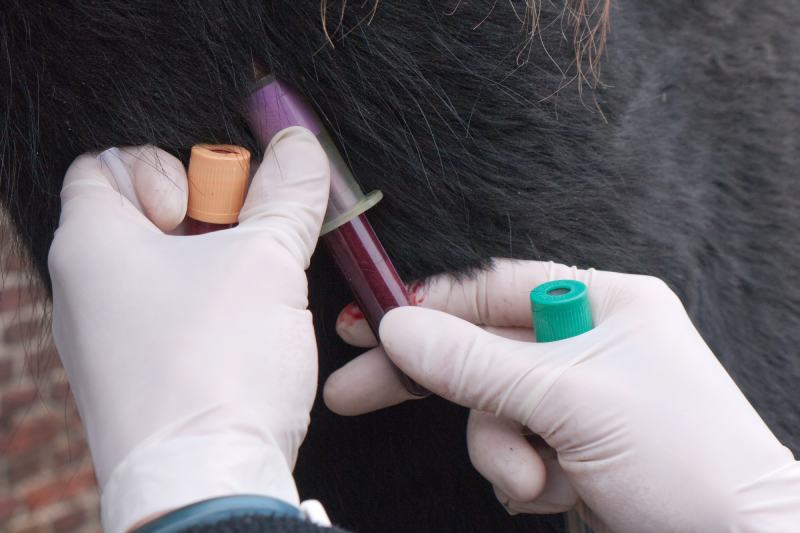

Final Thoughts
Physical signs of pregnancy don’t occur in horses until later in pregnancy. Therefore, they are often not an accurate way to determine if a mare is pregnant or not. The mare should be receiving extra supportive care long before physical signs may develop. Therefore, it’s important to use diagnostic methods to determine if a mare is pregnant.
These diagnostic methods are bloodwork and ultrasounds. Both of these tests can determine that a horse is pregnant rather early, and they can help ensure the pregnancy is developing properly.
Featured Image Credit: Marie Charouzova, Shutterstock



